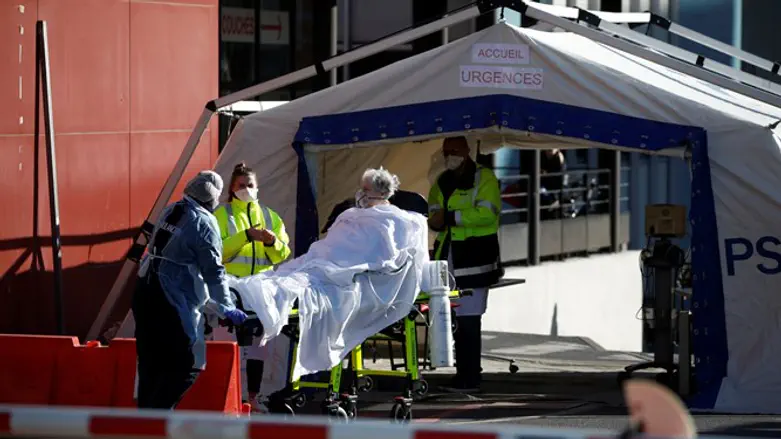
“We are told over and over again that 98% of patients affected by coronavirus recover” said to Le Figaro French Jewish philosopher Alain Finkielkraut. “If economic logic reigned supreme, our societies would have chosen to let it go. The majority of the population is said to have been infected and immunized. The oldest, the most vulnerable would be dead, ‘useless mouths’ in short."
"We didn't want this natural selection. And if the confinement becomes more and more strict, it is to avoid the congestion of hospitals and to have to sort through the patients: this one no, he is out of breath; that one yes, he is in the prime of his life. Perhaps the war will force us to these practices of prioritization, as we learn to say."
"But they horrify us. The life of an old man is worth as much as a person in full possession of his faculties. The affirmation of this egalitarian principle in the turmoil we are going through shows that nihilism has not yet won and that we remain a civilization”.
In Israel, for example, 4200 elderly people are being taken away from Bnei Brak to hotels in order save them and a facility for mentally challenged patients has been opened.
This is the cultural point of this tragedy. Coronavirus brought us closer to the Judeo-Christian culture of life. However, the danger is here.

Nine levels, from "very fit" to "terminally ill". The seventh also includes those suffering from "cognitive disorders". These were the first guidelines to help British doctors decide who should receive treatment first during the Covid-19 epidemic. Nine levels, from "very fit" to "terminally ill". The seventh also includes those suffering from "cognitive disorders". These were the first guidelines to help British doctors decide who should receive treatment first during the Covid-19 epidemic. The National Institute for Health and Care Excellence has been threatened with lawsuits for including patients with autism and other intellectual disabilities. Julie Newcombe, founder of Rightful Lives and with an autistic son, called the guidelines "frightening".
Nine levels, from "very fit" to "terminally ill". The seventh also includes those suffering from "cognitive disorders". These were the first guidelines to help British doctors decide who should receive treatment first during the Covid-19 epidemic. The National Institute for Health and Care Excellence has been threatened with lawsuits for including patients with autism and other intellectual disabilities. Julie Newcombe, founder of Rightful Lives and with an autistic son, called the guidelines "frightening".
Some US states, says ProPublica, have discriminating guidelines: in Tennessee people with spinal muscular atrophy are left behind; in Minnesota, cirrhosis of the liver, lung disease and heart problems and in the state of Washington, states such as New York, Utah, Colorado and Oregon, "general physical and intellectual ability" is evaluated. In Alabama, reads the document "Scarce Resource Management", "the mentally disabled are unlikely candidates for breathing support". And again: "People with severe or profound mental retardation, moderate to severe dementia or catastrophic neurological complications are unlikely candidates for support."
Professor Michael Bérubé, professor of literature at Pennsylvania State University and with a son with Down syndrome, told me: “I suspect that when the peak reaches the United States and our Healthcare workers will be overwhelmed, medical professionals will have to make heartbreaking decisions and I wouldn't be surprised at all if people with disabilities become low priority patients. I will be happy to be wrong.”
A few months ago, the Dutch MP of the Greens Corinne Ellemeet proposed to introduce "expectations of quality of life" for access to surgery for those over 70. Now, “doctors in the Netherlands have been advising elderly patients to think twice before agreeing to COVID-19 treatment in hospital intensive-care units, drawing criticism that they are attempting to ration scarce ICU beds”, explains the New York Times.
The abandonment of holiness and equality of life in the West is a form of horrific nihilism. It will lead to the abandonment of the weak and vulnerable. It is already happening. This epidemic will be a great test to understand if the Judeo-Christian vision still has vitality in the West.
The risk is to surreptitiously delegate to the virus the task of euthanasia and eugenics, a virus that has been around for a long time in the West.
